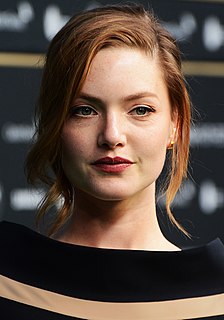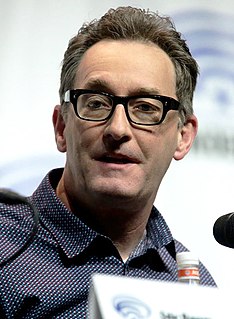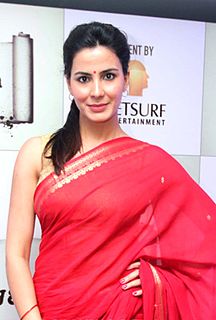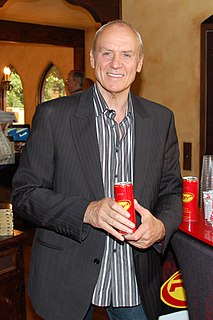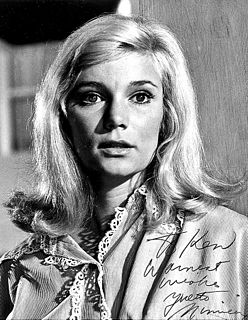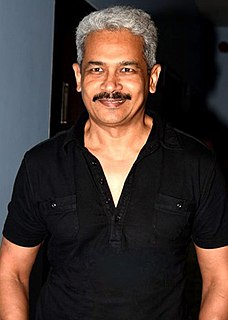A Quote by Kathryn Prescott
If you're an actor, you're at the mercy of a script. You've got far more control if you're the photographer.
Related Quotes
Any good movie or script usually, if they're doing their job, gives the highest platform possible for an actor to leap off of, and that script was very high up there. It was a very smart, tight script. There was a lot of improv, as well, once we got to the set, but a lot of the original script was also in there.
When you try to be true to the script, changes occur. A script is there to show us a certain direction. But when you actually have the actors in and you start shooting the movie, you have the actor say a line and it doesn't sound right so you change it and make it different. It's the script that gives birth to these changes and the more you try to stay true to the script, the more that happens.
I would always choose the script. You get more creative control that way. But, when you're in a situation like this, where everyone is really funny and you really want to do it, that's the chance of a lifetime, so you want to do it. But, a script has longer legs than a performance and, in the end, is more satisfying. It's harder, but it's more satisfying.
I have never seen a script that hasn't gone through at least eight different iterations before they even begin filming, and frequently what is filmed is not what's in the script, because things change on the ground. An actor can't say a particular line. An actor will have a brainstorm and ad lib something utterly brilliant.
The actor's always as good as the stories are. And so many important things, there is the light, there is the costumes, the makeup, there's the text, there's so many elements which the actor himself cannot control. But the script is the most important thing. First of all the story, and then you go from there. You know, it's like you stand in the kitchen, and say are we making a fish or do we grill a steak? And you go from there.



